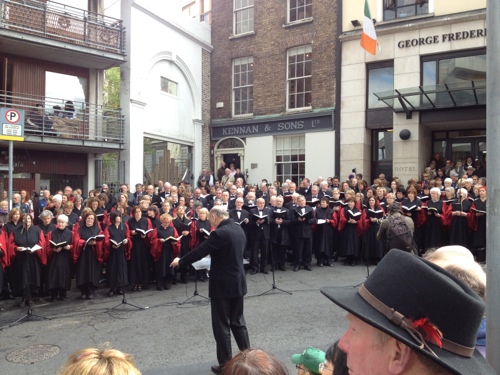Snarking the Hunt – I – Who pays for College?
 I spent this morning at a fascinating Seminar (pdf) on the National Strategy for Higher Education (the Hunt Report, which I blogged here), organised by my TCD colleagues Dr Andrew Loxley, Dr Aiden Seery, and Dr John Walsh, (CAVE, School of Education, TCD). This is the first of
I spent this morning at a fascinating Seminar (pdf) on the National Strategy for Higher Education (the Hunt Report, which I blogged here), organised by my TCD colleagues Dr Andrew Loxley, Dr Aiden Seery, and Dr John Walsh, (CAVE, School of Education, TCD). This is the first of four three blogposts about the event. The first panel concerned Who pays for College? Expansion and Sustainability in Higher Education. It was chaired by Prof Maria Slowey (DCU), and featured Mike Jennings (IFUT), Tony Donohoe (IBEC), Ryan Bartlett (President, TCD SU; and student in School of Education, TCD), and Dr Erika Doyle (TRSA).
In her introduction, Maria pointed out that the question of “who pays?” is much broader than fees, hence questions of expansion and sustainability in the subtitle.
Mike began his very witty presentation by observing that the Hunt Report is underwhelming and full of internal contradictions. Erika similarly observed that the Report is long on aspiration, but short on detail. And both of them felt that it betrays its lack of engagement with serving academics; and they and Ryan all observed that, where there are bars to access to higher education (HE), one family member may not be able to go to College to allow another to do so.…




